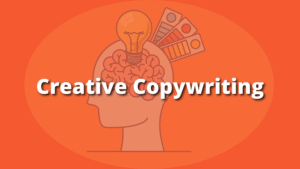What is copywriting?
What is copywriting? : Have you ever found that promoting your products and services doesn’t get you the desired results? Your website, marketing emails, or social media content isn’t well-written. So, you’re not encouraging your audience to take the final step of buying. Whatever you sell, you must consider how you formulate your written content.
Copywriting is the equivalent of writing based on marketing strategies. Its goal is to improve sales and increase conversion rates.
Definition and Overview of Copywriting
- What is Copywriting?
- What does a copywriter do?
- Who needs copywriters?
- How do you interview a copywriter the right way?
- Frequently Asked Questions About Copywriting
1. What is Copywriting?
Copywriting is one of the most important elements of advertising and marketing. This process involves writing persuasive words (known as copy) that persuade or motivate people to take a specific action.
You open a magazine and see a full-page ad for a perfume; the words on that page result from copywriting. When you go to a site that asks you to buy Something, the words on that page result from copywriting. You can find it in print, online, and on TV or radio. Copywriting is almost everywhere.

Who is behind the copywriting? Behind every copy, there is a copywriter. Copywriters are trained to put words together in a way that connects with their target audience and moves them to take a specific action. Most businesses hire a full-time or contract copywriter to help them connect with the world around them and grow.
Don’t confuse copywriting with copyright. They sound similar, but they are two very different concepts. So far, you’ve learned about copywriting. However, copyright is a form of legal protection for intellectual property rights in a work. For example, you can claim ownership of an audiovisual, musical, architectural, literary, or dramatic work and have the exclusive right to distribute or publish it.
2. What does a copywriter do?
A copywriter writes words that persuade an audience to take action. There are many types of copywriting, but the foundation is getting to know a specific audience and understanding their needs and wants. Then, the copywriter finds a way to best connect with the audience, showing them that they understand their problem and offering a solution.
What does a copywriter create?
Copywriters suggest words for various content and assets, including web pages, blogs, articles, advertisements, social media posts, emails, posters, billboards, guides, case studies, white papers, and more. They use written media to inform, engage, influence, or persuade audiences. Their goals range from increasing brand awareness to promoting a business or organization and making sales.

Copywriter Job Description
In general, copywriters do a bit of everything, including:
- Writing content to inform, educate, or inspire an audience
- Writing copy to move readers to a specific action
- Researching for information, statistics, keywords, topics, and brand information
- Editing and proofreading to improve grammar, style, readability, accuracy, voice, tone, and punctuation
- Working as a project manager involves brainstorming topics, working with other writers, writing, editing, revising, and publishing.
This demanding role requires both hard and soft skills.
3. Who Needs Copywriters?
Every business or organization that wants to communicate with its audience needs a copywriter. From sole proprietorships to mega-corporations, copywriters can work with:

- Independents: People who start and operate their businesses independently, such as interior designers, writers, event planners, graphic designers, and coaches.
- Marketing agencies: Companies with teams that help various clients with many aspects of marketing.
- Small businesses: Privately owned small businesses have lower annual revenue and fewer employees than the guidelines set for operating a small business. These limits vary by industry.
- Corporations: Large companies with hundreds or even thousands of employees.
- Fortune 500: The 500 largest U.S. companies are ranked by Fortune magazine.
- Retail stores: Traditional street-side stores that offer products and services.
- Startups: Early-stage companies founded by one or more entrepreneurs to develop a product or service.
- Nonprofits: Public charities, foundations, trade organizations, and community advocacy groups that do not operate for profit.
- Online retailers: Companies that sell goods or services online.
And so on!
No matter what type or niche your business is, you need copywriting. A key part of running a business is getting your audience to take action. To do this, your audience needs to know your company and be guided in the direction you want them to go. Crafting words that define your organization and influence your audience takes knowledge and skill. Every copy you create needs to fit into the larger puzzle of your brand’s identity and overall strategy.
The Role of Copywriters

Copywriters understand the bigger picture of your brand identity and the buyer’s journey, creating different types of copy that work together to achieve your business goals. They help to articulate everything, including:
- The essential components of a company’s brand are its mission, vision, and core values.
- The words appear on the company’s fixed assets, such as its website and social media.
- And the pieces that are needed on an ongoing basis, such as press releases, social media posts, blogs, and video scripts.
You have many options if you’re looking for a place to work as a copywriter. They’re all great choices, from department stores and investment firms to dentists and doctors. The key is finding a profitable and highly demanding job you enjoy writing about. Once you gain experience in any job, you can ask for higher pay rates.
In short, everyone in any business can benefit from hiring a copywriter.
4. How to Interview a Copywriter the Right Way?
You need to ask the right questions to hire the right copywriter for your project. Building a positive, professional relationship with a copywriter is essential. You can assign them more projects after your first successful job.

Below is a list of suggested questions to ask a copywriter. These questions are great steps towards building a positive conversation.
1. Do you have experience writing for my topic?
After asking a few questions to get to know the interviewee, ask specific questions. Start by asking if they have experience in your industry. If they answer yes, ask what companies they have worked for. If not, ask them if they can do that.
2. Do you have a clear research process?
Next, ask them if they have a research process when starting a new project. Copywriters should be able to research a company. Could you pay attention to how they researched? If they say they only need a brief search, they might not fit you well.
3. Can you show us some examples of your writing?
Look at some of their copywriting portfolios. Most of them have a collection of their best work. If there is nothing online at the time, look at their portfolio. Ask a few more questions about those projects. Were they successful? Did clients get good results from them?

4. What is your writing style?
Ask the candidate if they have a particular copywriting style. Some copywriters prefer a storytelling perspective, while others prefer a more technical approach. Either way, they likely prefer a particular style.
5. Do they prefer a specific product or service category to write about?
Following the previous question, ask about their favorite category or industry. If they don’t fit your company, don’t worry. It doesn’t mean they’re bad at what they do. If they’re interested in new challenges and new work, that’s a great sign.
6. Are you familiar with keyword research and Google results analysis?
Some copywriters do keyword analysis, but not all do. Sometimes, a copywriter may have content marketing knowledge and can provide a more in-depth study of different types of keywords and how they perform. Ask them if they’re familiar with Google results analysis to see if they can tweak your current copy in the right direction.

After interviewing a few candidates and selecting the top two or three, conduct a test to see if they are qualified. The most effective process is a two-part test determining whether the candidate fits the job.
7. Ask Them to Write Something
The best way to find out if a copywriter will write the content you need is to ask them to write a test. If you need a set of product descriptions, don’t ask them to write an email copy. Please give them a project that is exactly like the one you need. You’ll likely get better results if you pay for a test copy. You can charge a lower rate than what they charge for hiring.
If a copywriter feels like your testing process is honest and standard, they’ll do their best work. Let them know that you do this with applicants all the time. Ask them to prove themselves. Be transparent about the process.
8. Give Feedback and Analyze Their Responses
But taking the test isn’t enough. For even better results, take the second part of the test. Give the copywriter feedback on their work and suggest improving the copy. Analyze their reactions and see how they edit their work based on your feedback. In the process, you’ll learn how they handle constructive criticism.
Based on the results of this test, you can decide whether the writer you’re considering is a good fit for the role. Base your decision on their writing and answers to interview questions to find the best person for your business.
5. Frequently Asked Questions About Copywriting
Who is a Marketing Copywriter?
A marketing copywriter is the creative mind behind every word. They write for businesses to move their audience to take a specific action.
In the 50s and 60s, copy was attractive in the form of slogans and advertisements. While copywriters may still be behind these creations today, many write in various forms published online as part of digital marketing campaigns. These campaigns often include writing brand identity guides, website pages, product descriptions, white papers, blogs, social posts, emails, and sidebars. There’s even a marketing copywriter behind the content you’re reading right now!

While a product description or website “About Us“ page may seem simple enough, there’s a lot more to it. The marketing copy should speak to the intended audience in the right tone and use powerful words to explain the intended action. Marketing copywriters often have years of experience, are creative thinkers with strong research and excellent time management skills, are familiar with marketing principles and psychology, and may even have a college degree in a related field. They often work with founders, marketing strategists, designers, and developers to bring a company or organization’s vision to life. They may also specialize in a specific type of copy, such as email marketing campaigns or other types of copy.
Marketing copywriters do much more than write words. They know how to identify a business’s differentiating factors and its product or service. They can also put themselves in the shoes of a brand and create words to engage, inform, educate, and inspire their target audience.
In short, marketing copywriters are the people who write strategic words in a business that move audiences to take action.
What is SEO Copywriting?
SEO stands for search engine optimization, and some copywriters specialize in this type of copy. SEO-optimized copy is carefully written to appeal to a human audience while sending all the right signals to search engines. Why? Because it will rank your content higher on search engine results pages, driving more traffic to your page. More traffic means more opportunities to sell. Optimizing copy for search requires a deep knowledge of SEO best practices, including using the right keywords in the right places, using headers correctly, and tailoring the copy to the reader’s intent. This type of copywriting is required for web content, product descriptions, service descriptions, articles, and blogs.

What is a sales copy?
Sales copy focuses directly on selling. Sales copywriters must deeply understand their target audience and how a product or service can benefit them. They must delve into the audience’s subconscious and know why they buy. Then, they walk into the audience and address their pain points, empathize with them, and show them how to solve their problem properly. No one wants to feel like a product or service is being forced on them. Sales copy can be found on websites, landing pages, direct response letters, email marketing campaigns, social media ads, Google Ads, product pages, service pages, print ads, and billboard ads.
What is creative copywriting?
Creative copywriting involves conveying information interestingly and memorably. It requires strategic thinking and thinking outside the box. A creative copywriter can express an idea and a feeling in just a few words that will stick in the reader’s mind. You’ll find creative copywriting in slogans, ad headlines, TV commercials, and email subject lines. For example, the Ricola brand launched an advertising campaign with a series of statements that included the word cough. One of them was: “Cough is just a friend.“ This phrase will grab your attention, make you laugh, and imprint a trace of the brand’s personality in your mind. As a result, the next time you want to buy cough drops, you might just choose Ricola.

What are the benefits of hiring a copywriter?
Being a business owner doesn’t mean you have to be an expert copywriter. You need specific skills and the right mindset to create a copy with the right objectives at the right time and place. Publishing copy without a proper strategy can negatively impact your business, and it takes time and money to fix that.
Hiring a copywriter will help you:
- Have a powerful, effective copy for your business’s specific needs.
- Make sure your copy is free of grammatical and spelling errors.
- See your business from a new perspective.
- Take the stress out of writing your copy.
- Save yourself and your employees time to do other things.
Depending on your needs and budget, you can hire a junior copywriter or someone specializing in a specific type of copy or industry.

Why is access to quality copy important for any business?
A business must sell its products and services to perform well. That’s where good copy comes in. The key is to get people to see your ads, social media content, and landing pages and be willing to spend money. That’s why good copywriting is essential for converting leads into paying customers.
- Good copy drives your business forward in several ways:
- First, its words create an emotional impact on potential customers.
- This emotional impact makes them feel like they can relate to your brand.
- When they do, they feel like your brand can solve their problem or pain point.
- A call-to-action helps motivate them to make a purchase.
- This process leads to increased sales and conversion rates for your business.
As you can see, copywriting plays a crucial role in your business’s success. That’s why it needs to be done strategically. Correctly tweaking your business’s current copy can significantly improve conversion rates.
Finally
The copy shouldn’t be cryptic or complicated. Copywriting requires research, skill, and a deep understanding of your business’s needs and goals. But the benefits of hiring a good copywriter can’t be overstated.
Hiring a copywriter to help your business save you time and bring specialized skills to your company for the best impact on profitability. Armed with all the information they need, a skilled copywriter can significantly increase your marketing efforts and ROI, exposing your brand to your target audience.
Source
https://www.fiverr.com/resources/guides/writing-and-copywriting/what-is-copywriting